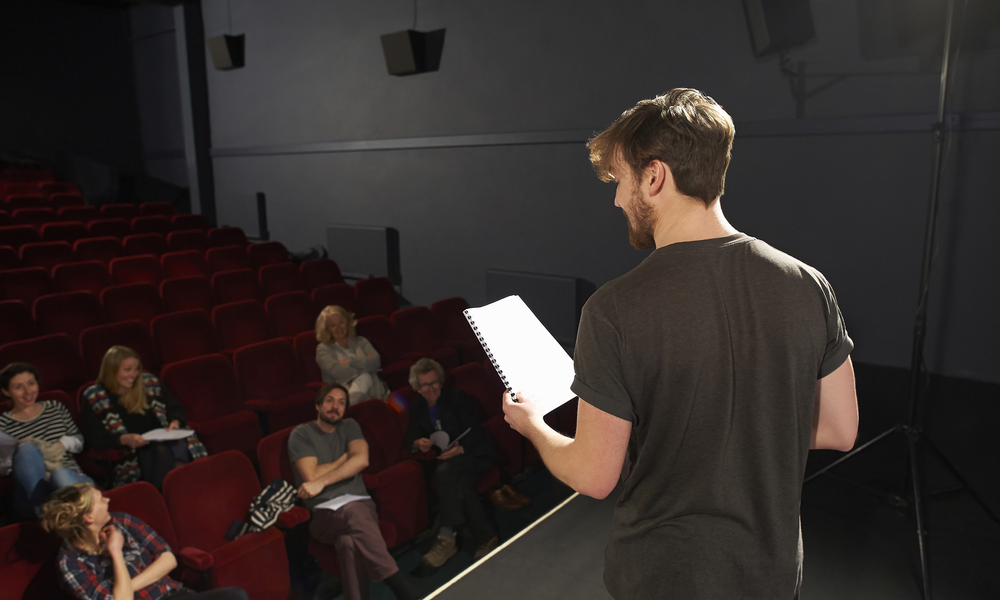News
Report demonstrates the role of EU research funding on UK disciplines
24 May 2017
A new report from the Technopolis Group commissioned by the UK’s four national academies – the British Academy, the Academy of Medical Sciences, the Royal Academy of Engineering and the Royal Society – demonstrates the role of EU research funding on UK disciplines.
Technopolis analysed the latest figures available from the Higher Education Statistics Authority (from 2014/2015) and found that all academic disciplines received some funding from EU government bodies. The report ranked them by the proportion of their total research funding derived from these sources.
Archaeology tops the list, receiving 38% of its funding from EU government bodies, followed by Classics (33%) and IT (30%). Seven in the top 15 are social sciences, six are in the arts and humanities and two are natural and physical science subjects.
Natural and physical sciences and engineering dominate in absolute numbers, with clinical medicine receiving the most funding in 2014/15 (£120m), followed by biosciences (£91m), physics (£55m), chemistry (£55m) and IT (£46m).
These figures are testament to the success of UK-based researchers in winning funding from EU government bodies. However, this is symptomatic of the limited funding landscape at home, especially in the arts, humanities and social sciences.
Foreign Secretary of the British Academy, Professor Ash Amin said:
"UK based humanities and social sciences are world-leading and this is recognised in the significant funding they have won from competitive EU programmes. The high proportion of EU funding in these disciplines also demonstrates the limited funding sources that exist within the UK.
“As the UK prepares to leave the EU, it is vital that our disciplines can maintain their global reputation for research and innovation. The Government must continue to support excellent UK-based research, through access to additional UK and international funding.”
Professor Simon Keay FBA, Professor of Archaeology and Associate Dean, Research at the University of Southampton said:
“As this report illustrates, EU Framework Programme research funding and particularly fundamental research grants from the European Research Council have had an exceptionally positive influence for UK-based archaeologists, as well as the humanities and social sciences more broadly. They have enabled major new scientific advances to be made, the creation of vital new international research collaborations that would not have been otherwise possible, and opened up other possible areas of funding.
With a third of all Advanced and Starting Grants ever awarded being won by UK-based scholars in the humanities and social sciences, this is a phenomenal illustration of UK excellence.
As the UK withdraws from the EU, the Government needs to continue supporting such research excellence in the humanities and social sciences, and critically fundamental research, ideally through the European Research Council as well as other sources. Without this, there is a danger that our hard-won international research collaborations will be lost, and that British science will suffer."
The British Academy’s Reflections on Archaeology report also recently recommended that archaeology’s stakeholder groups develop a single voice to lobby for action to meet current threats to the future health of archaeology and to the protection of archaeological heritage.”
The report also illustrates the funding received by higher education institution from EU government bodies. The University of Oxford leads the list of HEIs receiving the most EU funding (£60.3m), followed by the University of Cambridge (£59.5m) and UCL (£45.7m).
In addition, the report looked at the impact of EU funding on industry, as well as funding distribution across the UK and the leverage it brings by attracting investment from other sources.
Technopolis combined and analysed several sources of data on UK and EU research funding, as well as interviewing 30 organisations across government and industry to provide the most detailed breakdown yet of the role of EU funding in UK research and innovation.
The UK is one of the largest recipients of research funding in the EU. The EU’s fund for research and innovation is the competitively awarded €80bn Horizon 2020 programme, which remains open to UK institutions while the country is a Member State, and which the UK Government has committed to underwriting after leaving the EU. EU funds that also support research and development include structural funds which promote the development of different research capacity in EU regions.
Read the full report and the case studies.
Editor's notes
1. The UK National Academies – The Royal Society, Academy of Medical Sciences, British Academy and Royal Academy of Engineering – jointly commissioned consultancy Technopolis to better understand the role of EU funding in UK research and innovation.
2. Technopolis Group is a leading independent provider of policy advice and support to public sector decision makers. Our work is grounded in evidence and experience – supporting organisations and people to address environmental and societal challenges and achieve economic growth by means of science, technology, innovation and education. Founded in the UK in 1989, Technopolis Group has expanded its operations to 8 other countries and now works with clients in every continent. For more information please visit www.technopolis-group.com
3. The British Academy for the humanities and social sciences. Established by Royal Charter in 1902. Its purpose is to inspire and support high achievement in the humanities and social sciences throughout the UK and internationally, and to promote their public value. For more information, please visit www.britishacademy.ac.uk.
Follow the British Academy on Twitter @britac_news.
4. The Academy of Medical Sciences is the independent body in the UK representing the diversity of medical science. Our elected Fellows are the UK’s leading medical scientists from hospitals, academia, industry and the public service. Our mission is to advance biomedical and health research and its translation into benefits for society. We are working to secure a future in which:
- UK and global health is improved by the best research.
- The UK leads the world in biomedical and health research, and is renowned for the quality of its research outputs, talent and collaborations.
- Independent, high quality medical science advice informs the decisions that affect society.
- More people have a say in the future of health and research.
Our work focusses on four key objectives, promoting excellence, developing talented researchers, influencing research and policy and engaging patients, the public and professionals. www.acmedsci.ac.uk
5. As the UK’s national academy for engineering, the Royal Academy of Engineering brings together the most successful and talented engineers for a shared purpose: to advance and promote excellence in engineering. We have four strategic challenges: make the UK the leading nation for engineering innovation; address the engineering skills crisis; position engineering at the heart of society; and lead the profession.
6.The Royal Society is a self-governing Fellowship of many of the world’s most distinguished scientists drawn from all areas of science, engineering, and medicine. The Society’s fundamental purpose, as it has been since its foundation in 1660, is to recognise, promote, and support excellence in science and to encourage the development and use of science for the benefit of humanity.
Latest news
Contact the press office
For further information contact the Press Office on [email protected] / 07500 010 432.


